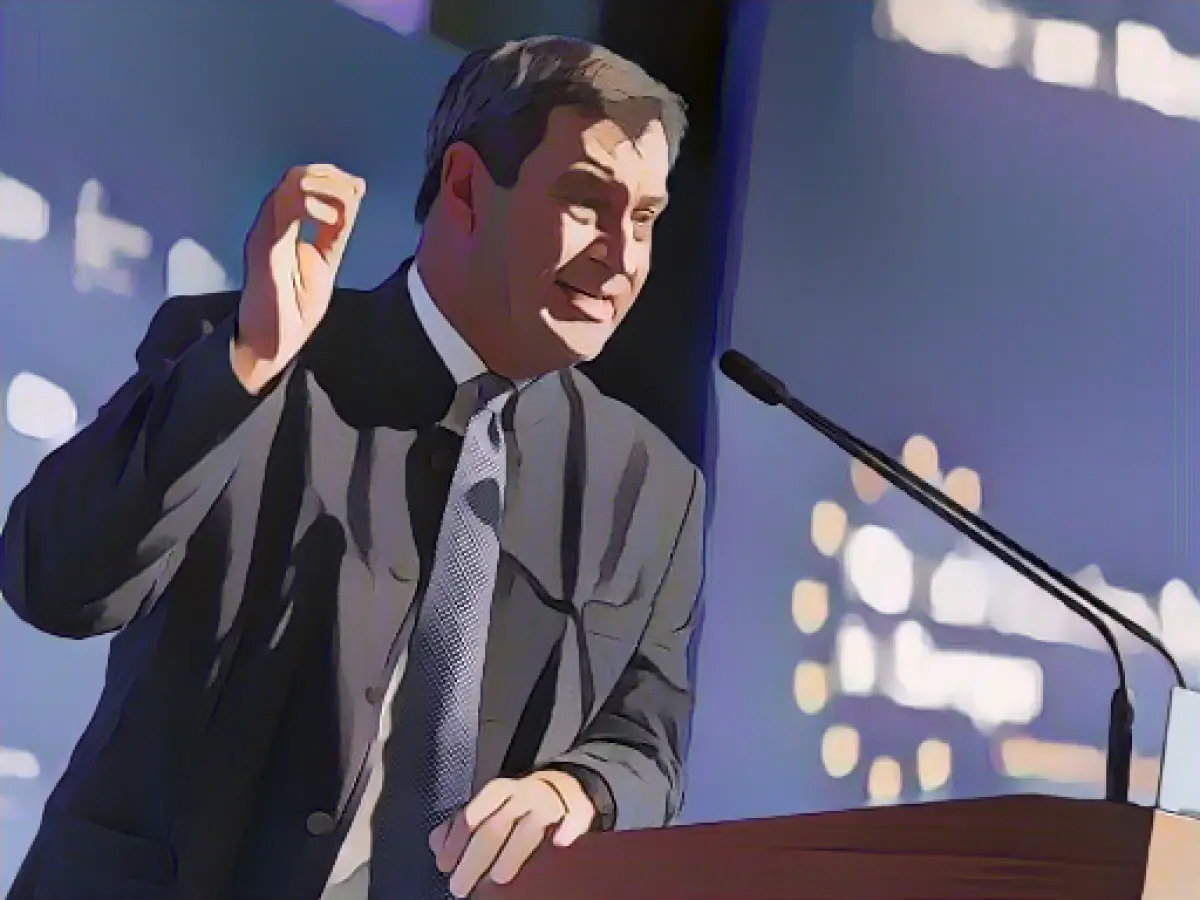Union disagrees on reform of the debt brake
Bavaria's Minister President Markus Söder sees Germany in a "serious national crisis" due to the budget problems. "This government has run out of money," said Söder at the CSU delegates' meeting for the European elections in Nuremberg.
"We don't have a budget emergency, we have a government emergency," said Söder. He spoke out against releasing the debt brake to solve the budget problems. "The debt brake is what made us strong in the first place, it is the only way to provide aid in crisis situations," Söder wrote on the X platform (formerly Twitter).
Wir lehnen eine Abschaffung der #Schuldenbremse ab. Solidität muss die Basis jeder Politik in #Deutschland und #Europa sein. Die Schuldenbremse hat uns erst stark gemacht, nur so sind Hilfen in Krisensituationen möglich. Und wir lehnen Steuererhöhungen wie bei der Gastro-Steuer…
— Markus Söder (@Markus_Soeder) November 25, 2023
Following the Karlsruhe budget ruling, there is a large gap in the budget. The Federal Constitutional Court had declared the reallocation of 60 billion euros in loans from the 2021 budget null and void. Finance Minister Christian Lindner (FDP) announced on Thursday that he would submit a supplementary budget for 2023 to the cabinet next week. The government intends to propose to the Bundestag that an extraordinary emergency situation be declared, which would allow the debt brake to be suspended. This is intended to legally secure loans that have already been used this year.
Union disagrees
The opposition CDU/CSU had filed a lawsuit in Karlsruhe. After the clear ruling, it had initially rejoiced and clearly declared its support for the debt brake. CDU party leader Merz said on Tuesday: "At the moment, I don't see that we need to approach the debt brake."
Thorsten Frei (CDU), Parliamentary Secretary of the CDU/CSU parliamentary group, recently described the government's plan to suspend the debt brake as a "daring legal maneuver". "I find it difficult that there is no talk of an emergency situation at the beginning of the year, but we basically already had the basis for what is now to become the basis of an emergency situation a year ago," Frei said on Deutschlandfunk radio on Friday.
The CDU state leaders in Berlin, Saxony-Anhalt and Saxony, on the other hand, have recently shown themselves to be open to a reform of the debt brake. Berlin's governing mayor Kai Wegner wrote on X on Thursday: "The debt brake is a good idea in terms of sound finances. However, I consider its current form to be dangerous."
Saxony-Anhalt's Minister President Reiner Haseloff told Stern magazine that the debt brake must remain. "But for very important future investments in the economy, technology and science, constitutionally compliant ways must be found to realize them." North Rhine-Westphalia's Minister President Hendrik Wüst was more cautious, but willing to talk. In his view, a reform should only be the last of all options, as he made clear on ARD television on Friday evening.
Reform rejection from the government
Federal Transport Minister Volker Wissing declared the discussion about a reform of the debt brake to be a sham debate. "There is obviously no constitutional majority for this," he told the German Press Agency in Mainz. "This is an abstract debate, but we have a concrete problem."
The Basic Law would have to be amended to reform the debt brake. This requires a two-thirds majority in the Bundestag and Bundesrat. On Friday, government spokesperson Steffen Hebestreit said that such a reform was not currently on the agenda.
Scholz wants to implement the ruling quickly
Federal Chancellor Olaf Scholz (SPD) once again announced that the federal budget would be revised quickly. "Once the court has spoken, it's just a matter of getting down to implementation," said Scholz on Saturday at a party conference of the Brandenburg SPD in Schönefeld near Berlin. And this should happen quickly.
Next Tuesday, Scholz intends to make a government statement on the budget situation in the Bundestag. A debate is planned afterwards. The Bundestag is to discuss the supplementary budget for the first time on Friday.
Household finances may be affected if the debt brake is suspended, as Christian Lindner proposes to release it to secure loans already used this year. Christian Lindner, the Finance Minister, acknowledged the need for a supplementary budget due to the Karlsruhe budget ruling. However, Christian Lindner's Christian Democratic Union (CDU) ally, Bavaria's Minister President Markus Söder, strongly opposes suspending the debt brake, pointing out its importance for household finances and crisis aid, as expressed in his tweet.
Source: www.dpa.com








